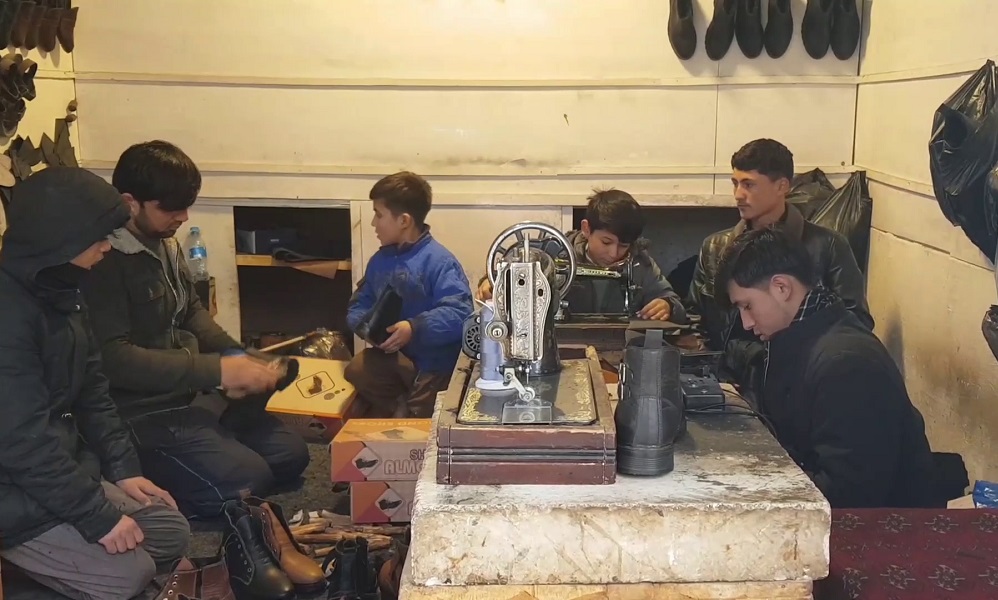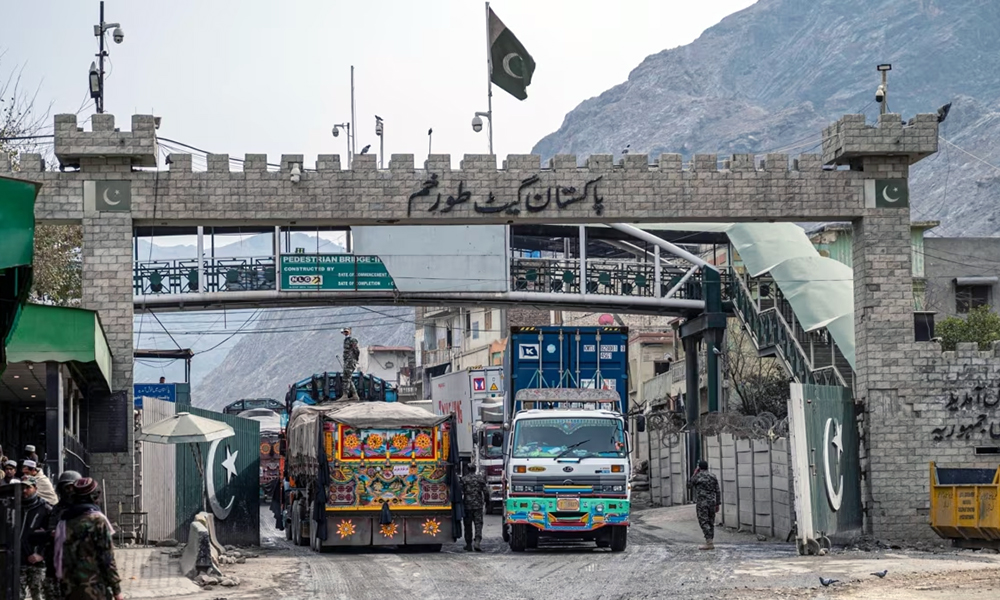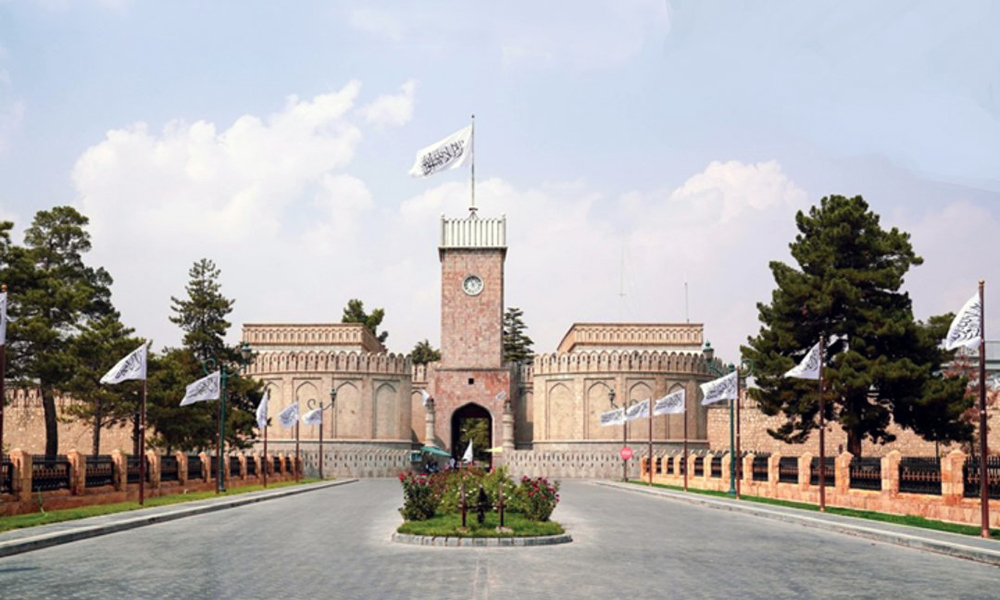Business
Illegal Iranian saffron in the country raises concerns

Saffron producers in Herat province have voiced concerns over the practise of importing saffron from Iran, which they say lowers the price of the spice on local markets.
Abdul Shakoor, head of a saffron producing company, said they have over the years exported hundreds of kilograms of saffron annually but that there is a growing trend among traders to import the spice illegally from Iran.
“It is a betrayal to the nation,” said Abdul Shakoor.
This comes after producers recorded a 30 percent increase in saffron exports last year.
Herat saffron exporters union said they have not been able to prove that saffron is being smuggled from Iran into Afghanistan but said controls in this regard were lacking.
“Some amount of saffron might be imported from Iran and will be exported from Afghanistan, but it is very rare. Afghanistan produces saffron by itself and there is no need for Iranian saffron,” said Mohamad Uthman Ansari, head of Herat saffron exporters union.
“We are not able to prove [reports] who imports the saffron… one thing that we notice is poor management,” said Bashir Ahmad Rashidi, head of Afghanistan saffron producers union.
The Afghan Ministry of Commerce and Industry said bringing saffron into Afghanistan is illegal.
Spokesman for the ministry, Ahmad Fawad Ahmadi said this week that action would be taken against anyone who brings saffron into the country illegally adding that Afghanistan’s saffron is the best in the world.
Business
Shoemaking industry in Takhar province facing stagnation

A number of shoemakers in northern Takhar province say that while their handmade shoes are of better quality than imported shoes, but still sales are down.
According to them, there were more than 20 shoe-making shops in the past, but now some have been closed due to the decline in sales.
The shoemakers make most of their shoes from leather. A number of industrialists say that this industry is now facing stagnation.
Abdul Raqib, a shoemaking factor owner, said: “The government should support us. Currently, we import soles. It can be made with good quality in Afghanistan, and we could even compete against Turkish shoes.”
Meraj, another shoemaking factory owner, said: “Shoe sales were higher in the republic era. There were military shoes. Sales have declined now, but we still thank Allah.”
Shoemakers make these shoes with basic tools and by hand, with 5 to 8 people working in each shop.
Javed, a shoemaker, said: “Our sales are not so good. We can make any type of shoe or slipper. We want the government to support us.”
A number of Takhar residents say that domestically produced shoes are of high quality and with lower price compared to imported shoes, so people prefer domestic products to foreign products.
Mir Ata, a resident of Takhar, said: “We are very happy about domestic shoes. People should buy it. They are of good quality.”
However, the officials of Takhar Industry and Commerce Department say that they are committed to support the industrialists.
Abdul Rahman Ghaznawi, provincial director of industry and commerce, said: “People prefer domestic shoes and slippers. Takhar’s products are sold in Kunduz, Baghlan and Badakhshan as well.”
Meanwhile, industrialists say that if the government supports them, they will be able to make the best products and can be more competitive.
Business
Daily truck clearances at Torkham drop from 400-500 to 5-10

Pakistan’s Sarhad Chamber of Commerce and Industry (SCCI) has said that daily truck clearances at Torkham crossing have declined from 400-500 to 5-10.
SCCI President Fazal Muqeem Khan said this at the signing ceremony of a memorandum of understanding (MoU) with the Pakistan-Afghanistan Joint Chamber of Commerce and Industry to promote bilateral trade and cooperation.
He said the volume of trade between Pakistan and Afghanistan had fallen from $3 billion to $1 billion annually.
Fazal Muqeem also highlighted the adverse impact of the 2% Infrastructure Development Cess (IDC) imposed by the Khyber-Pakhtunkhwa government on trade and transit.
Business
Turkish scholars, charity officials assess investment prospects in Afghanistan
Officials pledged to encourage Turkish investors to explore and capitalize on investment opportunities in Afghanistan

Afghanistan’s Acting Minister of Energy and Water, Mullah Abdul Latif Mansoor, met with a delegation of Turkish scholars and officials from the Adif Charity Foundation on Tuesday to discuss various political, religious, and social issues.
According to the Ministry of Energy and Water, Mullah Mansoor praised Adif’s humanitarian efforts in Afghanistan and highlighted the country’s ample resources for energy production.
He emphasized that Afghanistan currently offers a favorable environment for investment in all sectors, assuring the Turkish delegation of the Islamic Emirate’s commitment to ensuring the safety and security of investors and their assets.
In response, Adif officials pledged to encourage Turkish investors to explore and capitalize on investment opportunities in Afghanistan, signaling a potential boost in economic and developmental cooperation between the two nations.
-

 Sport5 days ago
Sport5 days agoZimbabwe’s opening ODI against Afghanistan abandoned
-

 World4 days ago
World4 days agoNorth Korean troops suffer 100 deaths, struggling in drone warfare, South Korea says
-

 Latest News2 days ago
Latest News2 days agoAfghan men must stand with women to support viable future of country: US envoy
-

 Latest News3 days ago
Latest News3 days agoTwo horror accidents on Kabul-Kandahar highway leave 52 dead
-

 Sport3 days ago
Sport3 days agoAfghanistan crush Zimbabwe by 232 runs in second ODI
-

 Regional5 days ago
Regional5 days agoIran’s president to make rare visit to Egypt for D-8 summit
-

 International Sports4 days ago
International Sports4 days agoLanka T10: Kandy Bolts in at 4th spot in playoffs after thrilling day
-

 World4 days ago
World4 days agoNATO takes over coordination of military aid to Kyiv from US, source says
























